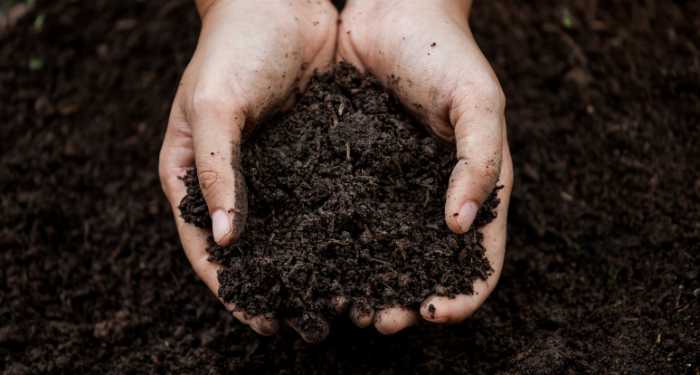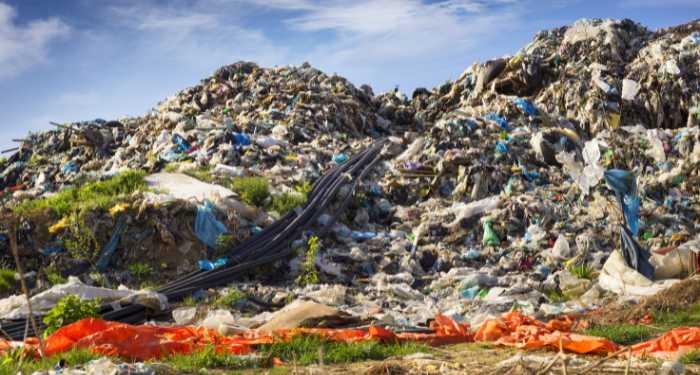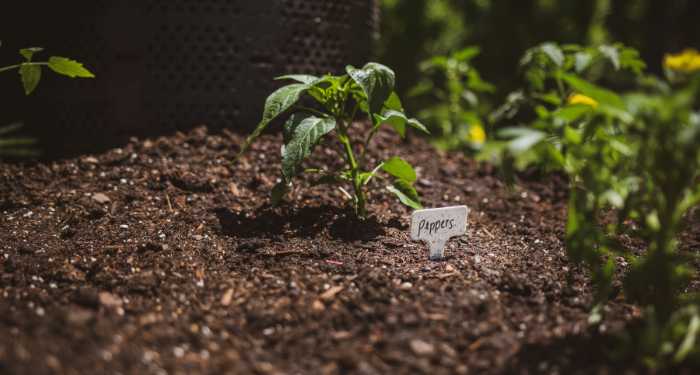Celebrate World Soil Day with Backyard Composting
Posted December 3, 2021 Held annually on December 5, World Soil Day recognizes the importance of healthy soil and advocates for the sustainable management of soil resources. Soil degradation is one of our biggest environmental concerns and occurs due to improper use or poor management of this vital resource. When the quality of soil declines, its capacity to support animal and plant life diminishes, so it’s important to raise awareness and take action to protect our soils.
Held annually on December 5, World Soil Day recognizes the importance of healthy soil and advocates for the sustainable management of soil resources. Soil degradation is one of our biggest environmental concerns and occurs due to improper use or poor management of this vital resource. When the quality of soil declines, its capacity to support animal and plant life diminishes, so it’s important to raise awareness and take action to protect our soils.
Soil is so much more than just “dirt.” Dirt is what you get under your fingernails; soil is a diverse, living blend of minerals, water, air, and organic matter. Healthy soil is essential to our everyday lives and provides us with plants that help feed, clothe, and shelter us.
World Soil Day is the perfect opportunity to celebrate the power of compost when it comes to improving soil health. When added to the soil, compost enhances the soil’s fertility, structure, water-holding capacity, and carbon sequestration. Compost also helps replace essential nutrients lost due to intensive farming practices and natural processes.
What is Compost?
Simply put, compost is decomposed organic matter, including food scraps, yard debris, and paper products. However, composting requires specific conditions to successfully break down these materials. Composting is an aerobic process, which means it requires oxygen to break down solid organic waste. This is because the aerobic microorganisms that turn food and garden waste into compost require oxygen to support their life.
In addition to oxygen, composting organisms require the following components:
- Carbon (“Brown” Material): provides energy
- Nitrogen (“Green” Material): assists in growing and reproducing more organisms to oxidize the carbon
- Water: helps with decomposition and regulates the temperature
How Compost Improves Soil Health
Compost Enriches Soil
Compost is rich in nitrogen, phosphorus, and potassium, which are all essential to healthy plant growth. Incorporating compost into the soil replenishes these vital nutrients and improves the soil’s ability to hold nutrients. It accomplishes this by increasing the soil’s cation exchange capacity (CEC), which is a measure of the soil’s ability to hold onto essential nutrients. Healthy soil is critical to supporting heathy vegetation.
Compost Improves Soil Structure
Adding compost to fine-textured soils, such as clay, helps reduce detrimental soil compaction. When soil becomes too dense, it makes it difficult for plants to grow because their roots cannot penetrate the soil. Incorporating compost loosens up dense soil, allowing for better root penetration and overall plant health.
Additionally, more pore space allows room for air and water to circulate, both of which promote a healthy environment for root growth and beneficial microorganisms.
Compost Increases Soil’s Water-Holding Capacity
Compost is also a superstar when it comes to holding water, so it is a powerful addition to coarse-textured sandy soils because it helps bind the soil particles, making it more resistant to erosion and improving its water-retaining properties. This means the vegetation will require less watering, which provides greater resistance to droughts and more efficient use of valuable water resources.
Additional Environmental Benefits of Composting

The environmental benefits of composting do not stop at improved soil health. Composting diverts organic waste from landfills where it lacks the oxygen necessary for proper decomposition. When organic matter decomposes in landfills, it releases methane—a greenhouse gas more than 25 times as potent as carbon dioxide as a heat-trapping gas.
According to the U.S. Environmental Protection Agency (EPA), food waste accounts for over 20% of municipal landfill waste. The good news is much of this organic matter is compostable and can be added to your GEOBIN® Composter. This includes fruit and vegetable scraps, eggshells, and used coffee grounds—all of which are sources of nitrogen.
Yard waste is another great addition to compost. Grass clippings, leaves, twigs, and other debris can be shredded and easily incorporated into your compost pile. This type of organic waste also produces methane gas when it ends up in landfills, so composting is a great way to help reduce harmful methane emissions.
Tips for Incorporating Compost into Your Soil
Compost application depends on your soil type and garden setup. If you live in an area with poor soil quality, thoroughly incorporating compost is important. If you are using the compost as an amendment to higher quality soil, you can spread a layer on top of your soil in fall.
Raised-bed gardening gives you more control of your soil quality and eliminates the need for tilling. Other benefits include better control of drainage and water retention, less soil compaction, and fewer weeds.

The Yardfully Raised Garden Bed is an all-in-one solution that makes it easy to set up and maintain your garden. Made from high-strength HDPE (High Density Polyethylene), the Yardfully Raised Garden Bed helps you create a stable structure for your flower, fruit, or vegetable gardens.
Once you choose the location and desired shape for the Raised Garden Bed, you are ready to fill it with your desired soil mixture and start planting. For the Yardfully Raised Garden Beds, infilling is as easy as 1-2-3:
- 1 Part = Potting Soil
- 2 Parts = Compost (from your Yardfully GEOBIN Composter or home compost system)
- 3 Parts = Topsoil
To learn more about composting food and yard waste, check out our Beginner’s Guide to Composting.

